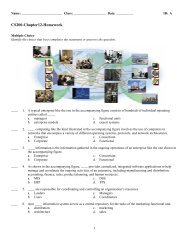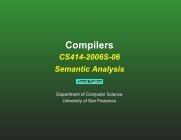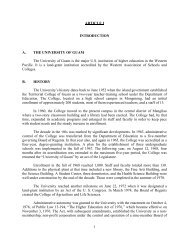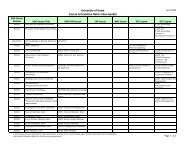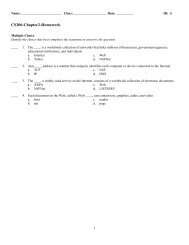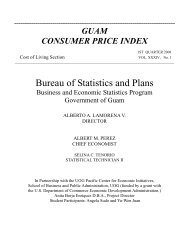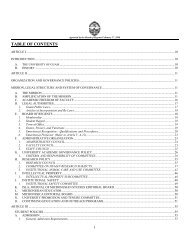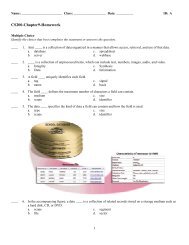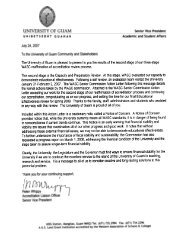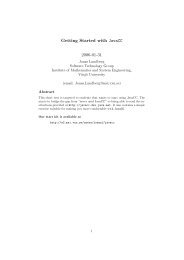Modern compiler design [PDF]
Modern compiler design [PDF]
Modern compiler design [PDF]
Create successful ePaper yourself
Turn your PDF publications into a flip-book with our unique Google optimized e-Paper software.
Chapter 7<br />
Semantic Analysis in C<br />
Chapter Overview<br />
7.1 Types in simpleJava<br />
7.1.1 Built-in Types<br />
7.1.2 Array Types<br />
7.1.3 Class Types<br />
7.2Implementing Environments in C<br />
7.3 Writing a Suite of Functions for Semantic Analysis<br />
7.3.1 Analyzing a simpleJava Program<br />
7.3.2 Analyzing simpleJava Expressions in C<br />
7.3.2 Analyzing Variables Expressions in C<br />
7.3.3 Analyzing simpleJava Statements in C<br />
7.4 Semantic Analyzer Project in C<br />
7.4.1 Project Definition<br />
7.4.1 Type Rules For Statements<br />
7.4.1 Type Rules For Expressions<br />
7.4.2 Project Difficulty<br />
7.4.3 Project “Gotcha”s<br />
7.4.4 Provided Files<br />
7.1 Types in simpleJava<br />
First, we will consider the implementation of types for simpleJava in C. A header file that defines the internal<br />
representation of types is in Figure 7.1.<br />
7.1.1 Built-in Types<br />
For the build-in types integer and boolean, we do not need to keep track of any extra information. The<br />
constructors for the base types are thus extremely simple – just IntegerType(), BooleanType(), and Void-<br />
Type(). To make our life a little easier, multiple calls to each of these constructors will always return the<br />
same pointer, so we can use pointer comparisons to check for type equivalence. That is, in the following<br />
code:<br />
type t1,t2;<br />
t1 = IntegerType();<br />
t2 = IntegerType();<br />
if (t1 == t2) {<br />
...<br />
}<br />
49


![Modern compiler design [PDF]](https://img.yumpu.com/37285279/50/500x640/modern-compiler-design-pdf.jpg)
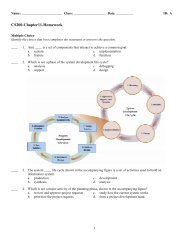

![Residence Hall Application Form [PDF]](https://img.yumpu.com/46340085/1/190x245/residence-hall-application-form-pdf.jpg?quality=85)
